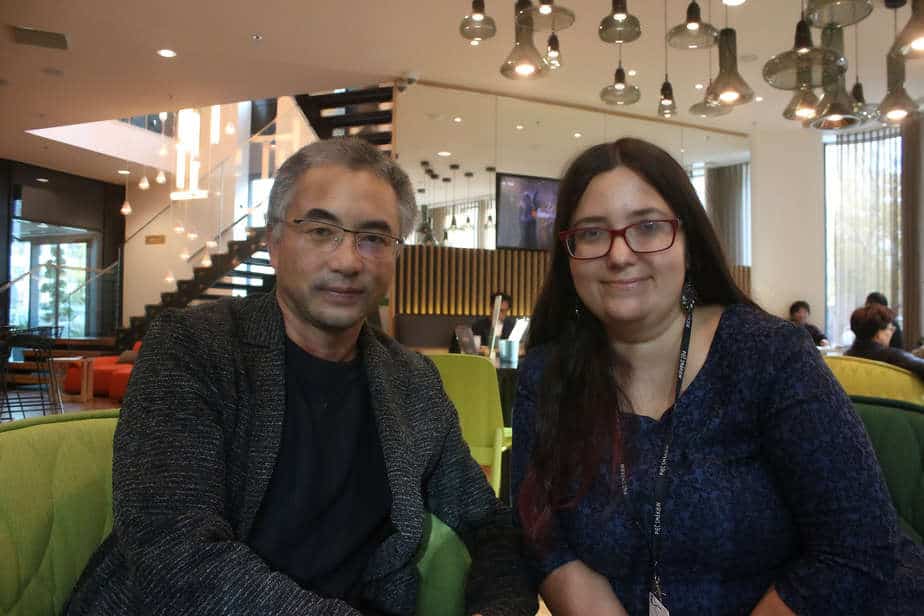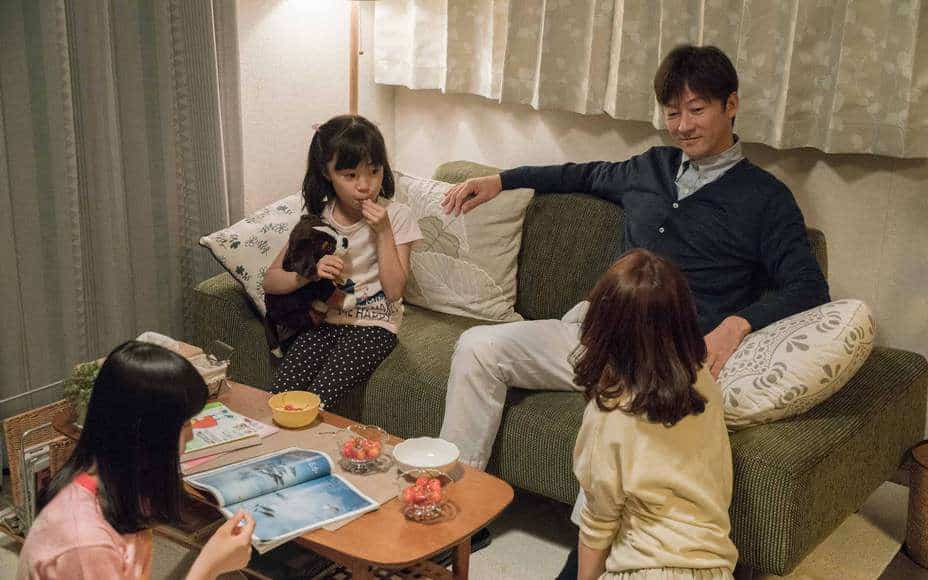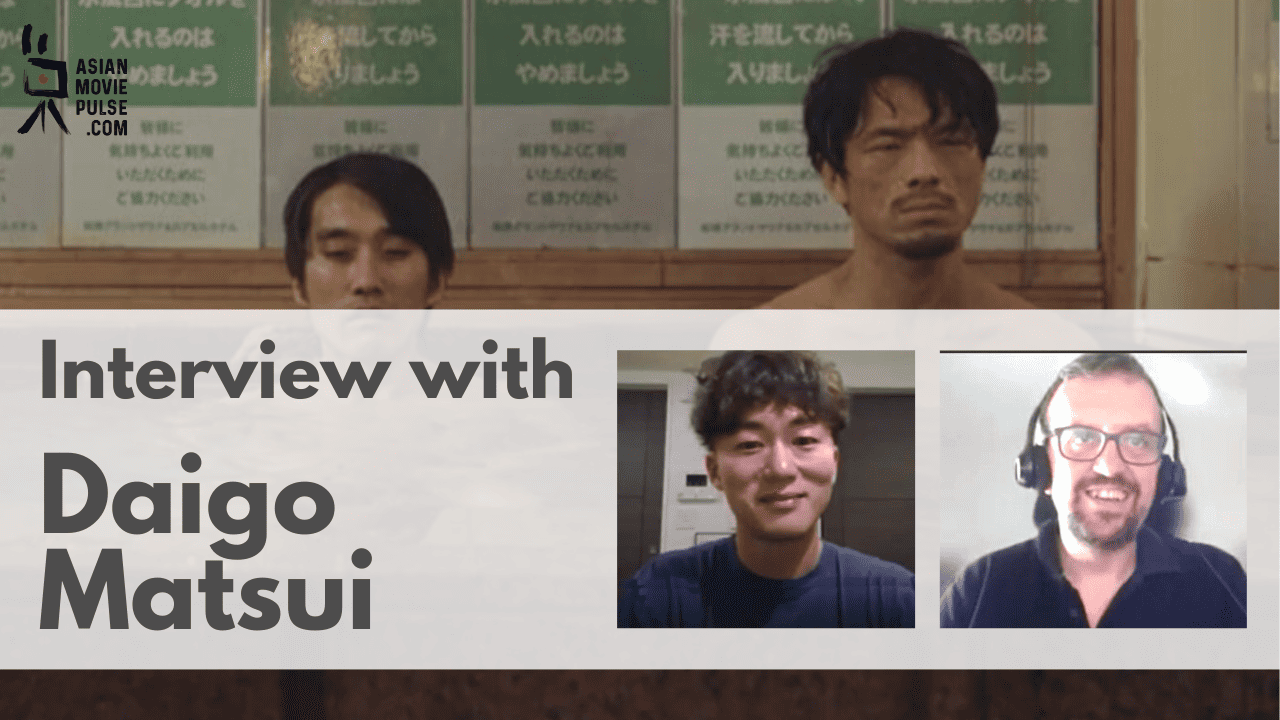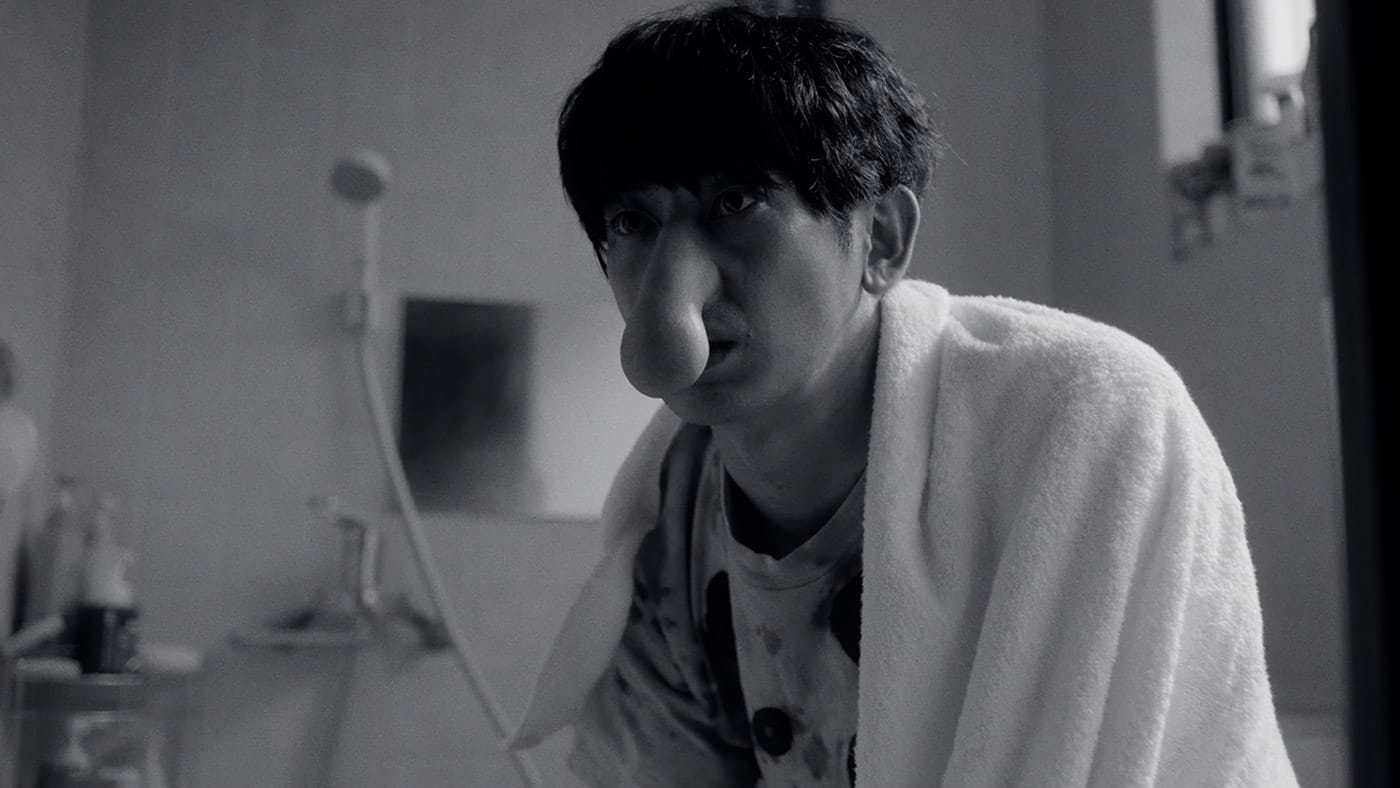Pema Tseden (པད་མ་ཚེ་བརྟན།), born in 1969, is the first Tibetan alumni of the prestigious Beijing Film Academy. He also studied Chinese-Tibetan translation and worked as a teacher and a civil servant. He is not only the sensitive and highly regarded director, portraying the modern Tibet with attention, accuracy and poetic touch, but also esteemed writer, whose works have been translated into several languages. Although portraying ethnic minorities is a delicate topic in China, so far he has managed to deal with censors well, as all of his movies got approval.
During the 13th edition of Five Flavours Asian Film Festival, where his latest movie “Balloon” was awarded the Grand Prix, we talked with him about the literature, misrepresentation of Tibet, living between the languages, Ingmar Bergman and the sense of loneliness.

I grew up watching movies about Tibet, shot from the Western perspective. What I remember is the vision of the place immersed in spirituality, with the colorful prayer flags waving profoundly against the background of a blue sky and snowy mountains, where outsiders come to find some bigger truth about themselves. But the Tibetan people other than Buddhist monks shown in a depersonalized manner were absent… Was it your purpose to finally give the people of Tibet their voice?
During my growing up, I was mostly exposed to the films about Tibet made by Chinese directors, thus reflecting the Chinese angle. These movies were burdened with a similar issue: the misrepresentation of the Tibetan people. Also, they were immensely ingrained in the Chinese perspective, often showing Tibetan characters talking with each other in Chinese and contained plenty of factual errors regarding the culture and the picture of everyday life. So it was very important for me to change this dissatisfying state of affairs. People in Tibet actually talk about the way they are depicted. Many times when I discussed the matter with my friends, I could sense their discontent over this prevailing inaccurate image. It was much later when I started watching movies about Tibet produced in the West, which had the flaws you mentioned. So again, they were portraying only one side of the veil, not illustrating actual people and life, and also reflected the extraneous perspective. So yes, my goal was to present how the genuine life in Tibet looks like and what the Tibetan people truly are.
Is the Tibetan audience satisfied with the representation you provide?
There are many people who are delighted to finally see a movie shot by a Tibetan, with Tibetan crew and actors, who speak their language. It is a matter of great importance to them. Also upon release of my debut film “The Silent Holy Stones”, which was the very first film of this kind, China celebrated the 100th annual of its cinema industry. The movie received awards at Chinese festivals, so it meant a lot for Tibetans that my work was recognized at that specific time. From my perspective, it is very interesting what kind of films the Tibetan audience enjoys. So there was a time when people were much more used to, for example, action movies from Hong Kong, those with martial arts, and later they got exposed to Hollywood movies. So while there are people who enjoy my films, the average viewer may feel a little confused, not understanding fully what they are actually about, so he thinks: “Oh well, this is just everyday life of normal people in the countryside. What on Earth is so interesting about this to make a movie out of it?”. So I also get this type of reactions.
But your approach is very unique. You portray everyday life infused with a poetic approach. For example “Jinpa”, despite its realism, is a very symbolic movie. You also portray characters in non-stereotypical way, e.g. showing monks enjoying TV…
The general idea is to portray the life of Tibetans as close to reality as possible, but also in such a manner that would be comprehensible by a wider audience, no matter whether in China or globally. What is intriguing, I often face all sorts of negative comments from Tibetans who live outside China and haven't been to Tibet for 20 or 30 years or from those born abroad. They have a certain vision of Tibet they recall from the past. It happens that in my movies Tibetan characters use some Chinese words or say something in Chinese, which is actually happening in everyday life. Those viewers I mentioned, find it hard to accept. They ask me how can I portray Tibetans speaking Chinese. But for me, the biggest concern is to provide the most accurate and authentic image of modern Tibet, without any idealization and irrespective of anybody's imagination or wishes how it should have been depicted. I also get this kind of comments in regard to the characters wearing Western clothes. “How is that possible, since the Tibetans wear traditional attire?.” What a paradox, the reality of Tibet I portray is not the reality they expect to see.
So it seems that the Tibetan diaspora also carries the idealized and idyllic portrayal of Tibet, like the Western audience…
Yes, I think it is interesting, how their idea of Tibet got frozen in time. It is an image woven from the threads of old memories. And when it comes to the generation born outside Tibet, they construct their vision from the stories they were told, so the memories, which aren't even their own. This is also the reason why I attempt to set my films in different periods, like mid-90s, late 90s and even later. I want to focus on diverse reminiscences from different times. I need to admit that even I sometimes bear a certain image of the place, for example where I grew up. Then when I come back, I suddenly realize that everything has changed…
I guess we all do that… You are the director, but also the writer. And sometimes you adapt your literary works for your scripts. What is the most important difference for you between the language of cinema and literature?
I think the most important difference is that they follow their idiosyncratic logics. You can compare it to the translation process. When you translate, for example from Chinese to English, you don't do it literally. You have to transfer the ideas expressed in one language into another language, operating within its inner system of rules and codes. And in the same way, you decode the language of the literature to the language of cinema.
As we speak about the language, how it is to live between the languages, in your case between the Tibetan and Chinese?
It's quite a complicated question. As far as my writing is concerned, I would say that the decision which language, Tibetan or Chinese, shall I choose, depends on a topic and my perception of what fits this particular topic better. In regard to films, the matter gets more entangled. There are official requirements we have to fulfill as filmmakers. Every script must be accepted by the censorship committee and for that it needs to be written in Chinese. So everything begins with this approval. Later, because my films are Tibetan and about Tibetans, the script needs to be translated back. Yet this is not the end… When my movies are screened at festivals all over the world, they are translated into local languages, like here, during the Five Flavours, into Polish. I do work with people responsible for translations to make sure that they find the best way to express what I desired to express.
I've read that when “Tharo”, the story you also filmed, originally written in Chinese, was translated into Tibetan, someone else made the translation. Did you have any influence over the final text and why didn't you translate it on your own?
Initially, I was writing in both languages. So having finished a text in Tibetan or Chinese, I was rewriting it in the second language. And this process differed from a translation. It was more about initiating the creative process again. As I previously told, I follow the logic of the particular language that I am writing in. When you translate, you prioritize the language of the original idea, so there are certain rules that you need to follow and you try to stay as close as possible to the original version. The situation changed when I started making movies. I simply didn't have enough time to do that any longer. Also, the publishers and magazines started approaching me asking to write something for them. Because they were Chinese, the language of publication was obviously Chinese. Though I always try to participate in the translation process or at least read the finished translation. So yes, it is true, that “Tharlo” was originally written in Chinese, and I didn't translate it into Tibetan, but I was accepting the translation and had an influence over this process.
So what is your inner language, the language of your thoughts and dreams?
Definitely Tibetan, it is my mother tongue. I haven't learnt Chinese until I went to school, so it is always a second language for me. I always dream and think in Tibetan. Even when I write in Chinese, some people mention that my texts have a bit of Tibetan feel in sense of structure, the logic, the means of expression, so they are never a hundred percent Chinese.
I've heard about your earliest movie experiences with an outdoor mobile cinema visiting your village. I was wondering how you got involved in literature.
I have to say that I was exposed to literature earlier than to movies, however, it wasn't the “written” literature, but the Tibetan folk tales transmitted orally. In the area where I grew up, many people narrated the traditional stories very beautifully. So this was my very first exposure to literature, which became a huge source of inspiration. Many readers or critics, who appreciate my works, notice the influences of traditional folk tales in my writings. My way of paying it a homage was the involvement in the big translation project of the most famous Tibetan traditional stories into Chinese. Of course, gradually I became more accustomed to literature in a “physical” form. In early days, from time to time, I could come across a book. For example, once I found a volume in Chinese. It looked very old and its cover was torn off. I didn't really know what my trove was, though I tried to decipher it. Of course, when I went to school it all changed.
In one of the interviews, you mentioned that “books were so rare that a dictionary could be traded for a yak…”
It is not the story from my particular village, but it describes the general situation in Tibet at that times. Books were extremely rare and treasured by the people who wanted to learn and pursue their education. So you heard those stories about students trading a dictionary for a yak because the dictionary was so essential for them. Basically, it was a tool to complete their studies. Also, education at those times was held mostly at Buddhist monasteries. I recall the stories not only from mine but from the previous generation as well, that when the new supply of schoolbooks or other books arrived in the bookstore in the morning, by the afternoon they were all gone. So often you needed to copy a textbook by hand. Actually, I acquired a lot of my education this way.
You mentioned copying by hand… I remember reading that the person who taught you to appreciate the Tibetan language and culture was your grandfather, who made you copy the religious scriptures by hand after school…
It is completely true. My grandfather believed that I am the incarnation of his uncle, whom he perceived as his spiritual and educational guide. My grandfather became someone like that for me, as he gave me the opportunity to go to school and get an education. And it's also true that I copied ritual texts after school. I have to admit that as a child I found it a bit annoying. But everything is for a reason and it was extremely difficult to get those spiritual scriptures. During the early days of my childhood, it wasn't allowed to practice religion openly. You needed to perform the rituals in secret. Only later the policy became more open and we could practice our religion. My grandfather used to borrow sacred texts from other families and because he was illiterate, he couldn't copy them on his own. As soon as I went to school and learnt how to write, it became my duty.
Let's go back to your works. I'd like to ask you about something present both in your movies and stories. The sense of loneliness. Where does it come from?
There are two factors that contributed to it. Tibetan Buddhism often refers to the fact that the only constant in life is change, which causes various insecurities. My grandfather was often mentioning that all is impermanent and nothing lasts, so this philosophy had a big impact on my way of thinking. The other cause is connected to my personal history. Early in my childhood, before pursuing education, I used to herd sheep. All alone in a secluded area, among the huge stretches of grasslands. When you have this endless space spreading around, and your only companions are sheep, not much of talkers, the feeling of loneliness only intensifies.
I can only imagine… Time for the last question. In several interviews, you referred to Ingmar Bergman as your inspiration. Because his “Seventh Seal” is one of my beloved movies, I am curious what is so special about him for you?
Yes, Ingmar Bergman is one of my favorite directors. Of course, when you study at film school you watch hundreds of movies and you are exposed to many creators. But despite the fact the names of directors who have influenced me change with time, my admiration for Bergman stays constant. What attracts me to him is the unique mixture of realistic and symbolic techniques. In his movies, he reflected upon the religion and its influence over the culture and society, what I am also attempting to do. He also explored the relation between dreams and subconsciousness. This is very closely related to how I understand art and what describes the essence of art for me.
And for me, your movies are the journey through the land of dreams, but at the same time a journey to the real Tibet. Thank you for our talk.
This interview was made possible with the help of Anna Stryjewska who provided English-Chinese translation.















